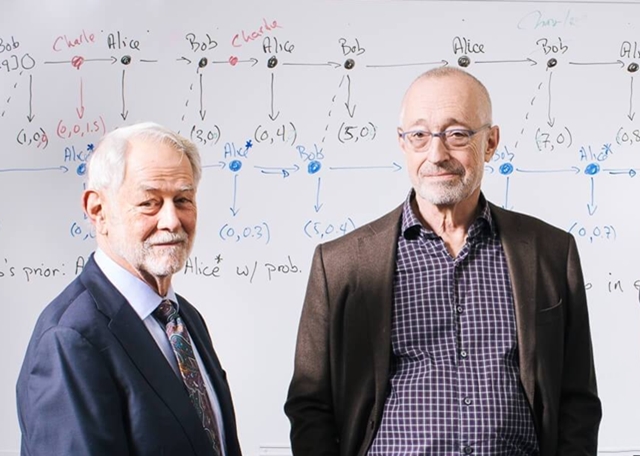Stockholm: American economists Paul R Milgrom and Robert B Wilson won Monday the Nobel Prize for improving the theory of how auctions work and inventing new and better auction formats that are now woven into many parts of the economy. The discoveries of Paul R Milgrom and Robert B Wilson ‘have benefitted sellers, buyers and taxpayers around the world,” the Nobel Committee said. It noted that the auction formats developed by the winners have been used to sell radio frequencies, fishing quotas and airport landing slots.
Both economists are based at Stanford University in California. Milgrom said he received news of their win ‘in a strange way’. “I got a knock at my door from Bob Wilson,” Milgrom told this agency. “He was my Ph.D advisor, and he (Wilson) lives right across the street from me.” Milgrom added.
Students, friends and colleagues had long suggested he and Wilson might be due for the prize. “It’s really sweet actually,” Milgrom stated. “It’s nice to have their respect but their affection as well.”
Also read: Give money directly to people to revive economy fast: Abhijeet Banerjee
The winners were announced in Stockholm by Goran Hansson, secretary-general of the Royal Swedish Academy of Sciences, rounding off a week of Nobel Prizes.
Technically known as the Sveriges Riksbank Prize in Economic Sciences in Memory of Alfred Nobel, the award was established in 1969 and is now widely considered one of the Nobel prizes.
The committee said Wilson’s work showed ‘why rational bidders tend to place bids below their own best estimate of the common value’, that is, ‘the value which is uncertain beforehand but, in the end, is the same for everyone’.
“Bidders) are worried about the winner’s curse — that is, about paying too much and losing out,” the committee said.
Wilson, 83, described his former student as ‘sort of the genius behind all of these auction work’ noting that they first worked together on auctions in the 1970s. “We’re really motivated to use theory in a very practical way to improve various economic processes,” Wilson said.
Milgrom, 72, developed a more general theory of auctions that takes into account what is known as the ‘private value’ of what’s being sold that can vary greatly from bidder to bidder.
Speaking to reporters here by phone after learning of his win, Wilson struggled to think of an auction he himself had participated in. But then added: “My wife points out to me that we bought ski boots on eBay. I guess that was an auction.”
